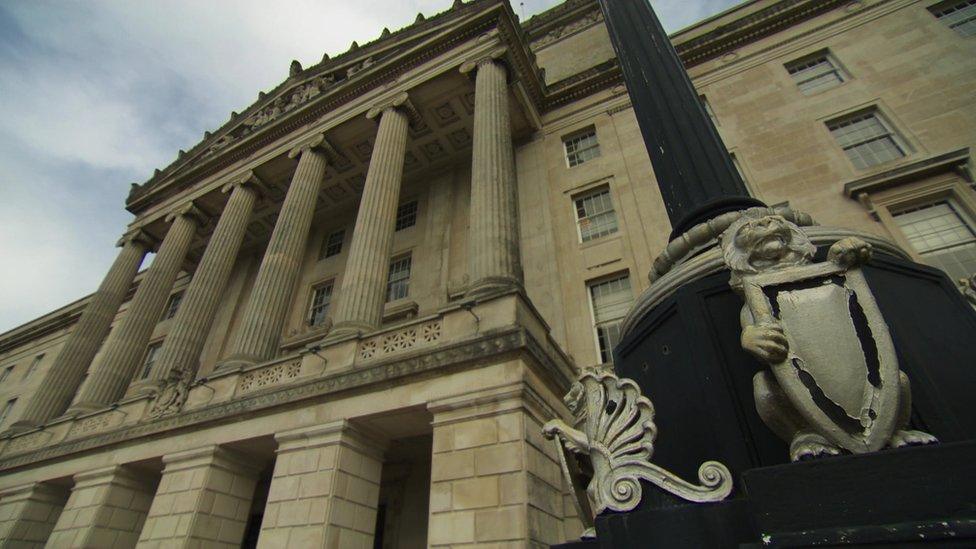Stormont: Parties to be given talks proposals
- Published
- comments
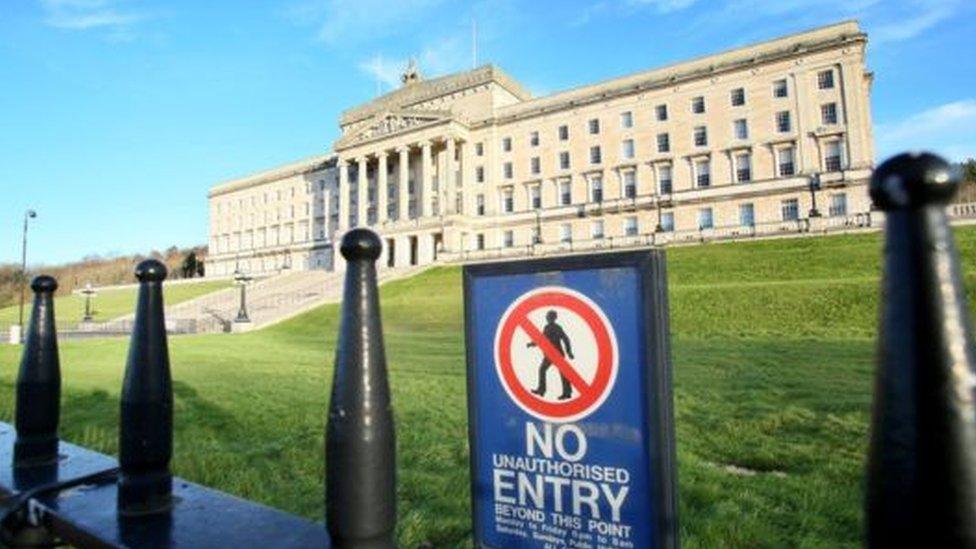
Devolved government at Stormont collapsed in January 2017
The NI secretary and Irish deputy prime minister are to present the NI parties with proposals for a talks process, the BBC understands.
On Friday, Sinn Féin leader Mary Lou McDonald dismissed efforts to kick start talks at Stormont as a "sham".
The British and Irish governments met the five main Northern Ireland parties.
Despite the Sinn Féin response, Karen Bradley and Simon Coveney have pledged to come back with proposals to restart the talks process.
Speaking at a party conference on Saturday, DUP leader Arlene Foster accused Sinn Féin of engaging in the "politics of ransom".
"The restoration of Stormont should not be about political brinkmanship or about party advantage. It should be about people" Mrs Foster said.
"Whether it is contracts not being awarded, reforms not being implemented or new laws not being passed - be in no doubt our constituents are feeling the pain. It cannot go on."
"Four of the five parties in Northern Ireland are ready to move on and restore the assembly.
"One party stands as the blockage. I warn Sinn Féin today from this platform: this is no game.
"Whatever your demands about the Irish language, they do not trump the genuine and heartfelt demands of the good people up and down this country."
Friday's talks followed on from the All-Island Civic Dialogue on Brexit in Dublin on Friday morning. The tánaiste (Irish deputy prime minister), Mr Coveney, also attended.
Sinn Féin's Mrs McDonald said nothing credible was put on the table to warrant a fresh round of negotiations.
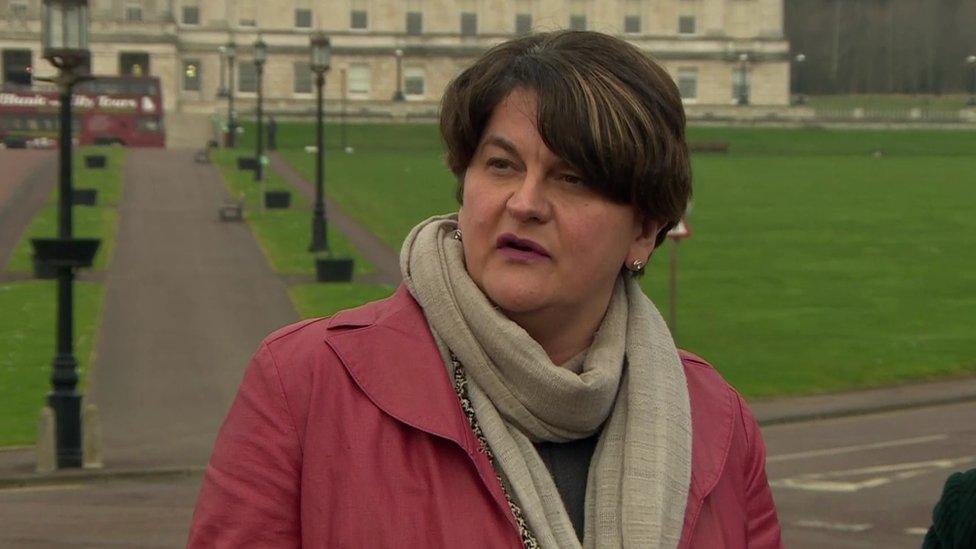
Arlene Foster said Sinn Féin should not treat the restoration of devolution as a game
She said it was clear the government and DUP "are not serious about resolving the outstanding issues".
Unionists and nationalists disagree over issues such as legislation to give official status to the Irish language in Northern Ireland, rights for same-sex couples to marry and Troubles legacy issues.
SDLP leader Colum Eastwood said his party was sceptical about Mrs Bradley's motivation for calling the talks.
However, he said that the SDLP had a "willingness to try to do business" and was determined to see the restoration of an executive and an assembly.
UUP leader Robin Swann said that if politicians cannot get the executive and assembly back up and running then "we need to go to direct rule" from Westminster.
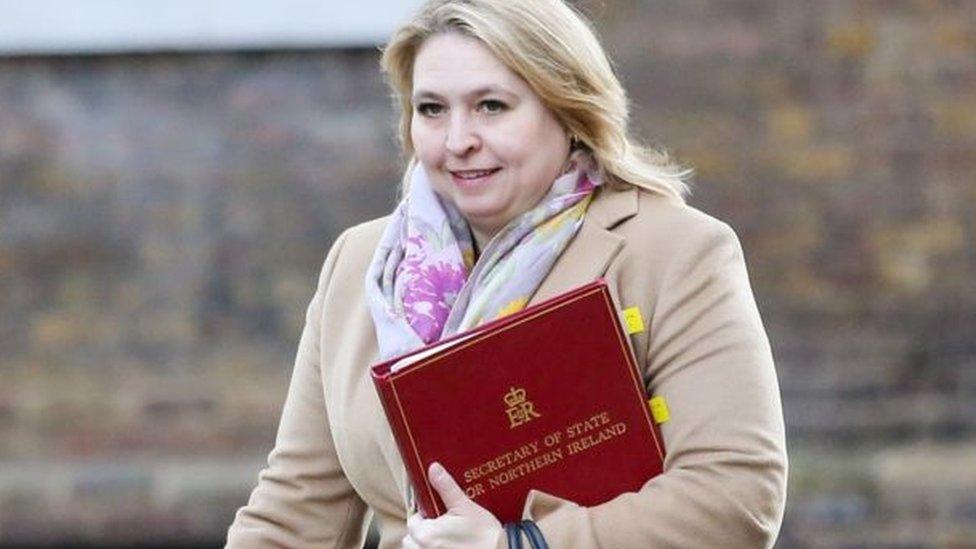
Karen Bradley has convened fresh talks aimed at assessing the mood
In the House of Commons on Wednesday, Mrs Bradley said she was working tirelessly towards her "absolute priority" of restoring devolution to Northern Ireland.
However, she acknowledged it was a sensitive matter which required careful handling.
Labour's Northern Ireland spokesman Tony Lloyd said that in the two years since the Executive collapsed it would be very hard to claim the UK government had engaged in sustained action to bring back government at Stormont.
This week, the head of the Civil Service David Sterling expressed concern to the BBC about what he described as a "slow decay" and "stagnation" in local public services.
Mr Sterling said he feared the absence of elected ministers at Stormont could become "the new normal."

Why is Northern Ireland without a government?
Northern Ireland has been without a government since January 2017, when the governing parties - the DUP and Sinn Féin - split in a bitter row.
Martin McGuinness, the then deputy first minister, resigned in protest of the handling of the botched Renewable Heat Incentive (RHI) scheme.
Since then, the two parties have remained far apart over crucial issues such as Sinn Féin's desire for legislation to give official status to the Irish language in Northern Ireland, rights for same-sex couples to marry and Troubles legacy issues.
Several rounds of talks to restore government at Stormont have, so far, failed while the UK government has resisted calls to institute direct rule from Westminster.

- Published13 February 2019
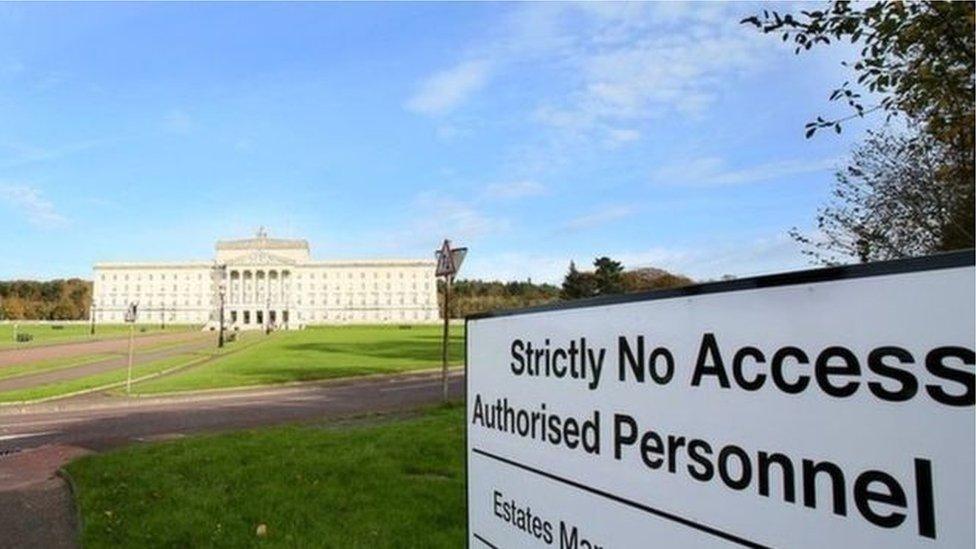
- Published9 January 2019
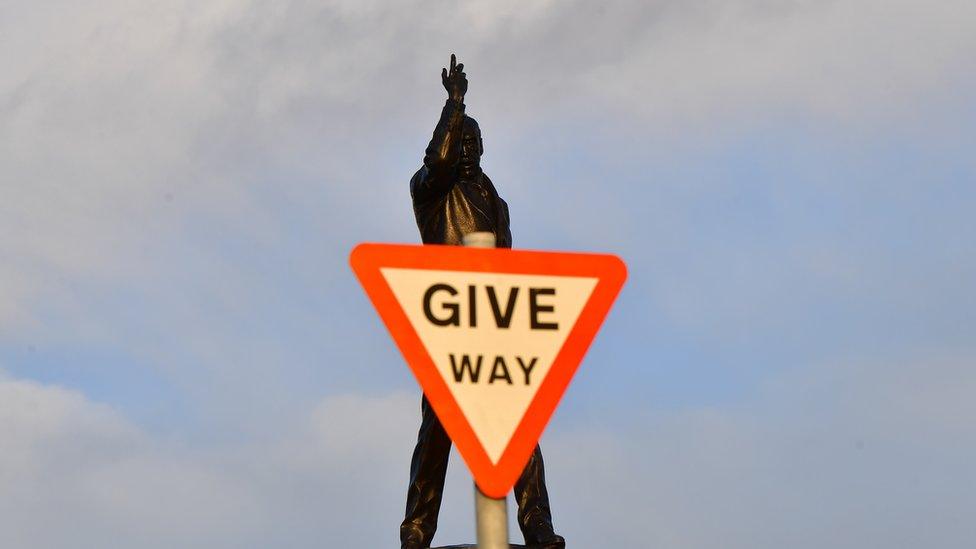
- Published30 November 2018
